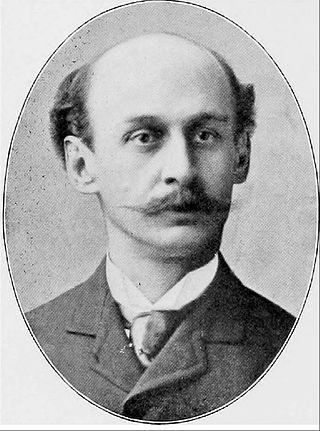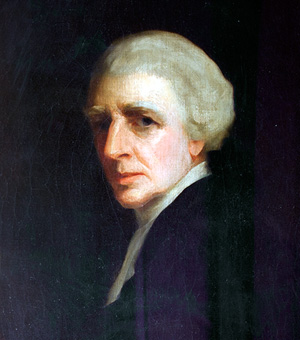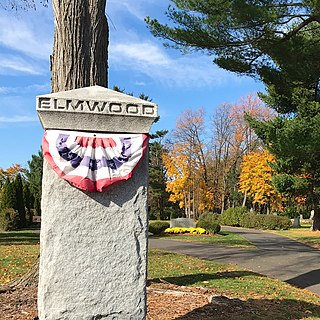
Henry Janeway Hardenbergh was an American architect, best known for his hotels and apartment buildings, and as a "master of a new building form — the skyscraper." He worked three times with Edward Clark, the wealthy owner of the Singer Sewing Machine Company and real estate developer: The Singer company's first tower in New York City, the Dakota Apartments, and its precursor, the Van Corlear. He is best known for building apartment dwellings and luxury hotels.

Thomas De Witt Talmage was a preacher, clergyman and divine in the United States who held pastorates in the Reformed Church in America and Presbyterian Church. He was one of the most prominent religious leaders in the United States during the mid- to late-19th century, equaled as a pulpit orator perhaps only by Henry Ward Beecher. He also preached to crowds in England. During the 1860s and 70s, Talmage was a well-known reformer in New York City and was often involved in crusades against vice and crime.

Jacob Rutsen Hardenbergh was an American Dutch Reformed clergyman, colonial and state legislator, and educator. Hardenbergh was a founder of Queen's College—now Rutgers, The State University of New Jersey—in 1766, and was later appointed as the college's first president.

Philip Milledoler was an American Presbyterian and Dutch Reformed minister and the fifth President of Rutgers College serving from 1825 until 1840.

William Henry Campbell was an American Presbyterian minister and the eighth President of Rutgers College serving from 1862 to 1882.

New Brunswick Theological Seminary is a seminary of the Reformed Church in America (RCA), a mainline Protestant denomination in Canada and the United States that follows the theological tradition and Christian practice of John Calvin. It was founded in 1784 and is one of the oldest seminaries in the United States. First established in New York City under the leadership of John Henry Livingston, who instructed aspiring ministers in his home, in 1810 the seminary established its presence in New Brunswick, New Jersey, where its main campus is now located. Although a separate institution, the seminary's early development in New Brunswick was closely connected with that of Rutgers University before establishing its own campus in the city in 1856.
Norman Jay Kansfield was an American minister who served as a senior scholar in residence at Drew University. He was suspended from being a minister in the Reformed Church in America and president of the New Brunswick Theological Seminary in 2005 after officiating at his daughter's same-sex marriage.

The Elmwood Cemetery is located at 425 Georges Road in North Brunswick, Middlesex County, New Jersey. It borders New Brunswick, New Jersey. The cemetery was established in 1868.

Old Queens is the oldest extant building at Rutgers University and is the symbolic heart of the university's campus in New Brunswick in Middlesex County, New Jersey in the United States. Rutgers, the eighth-oldest college in the United States, was founded in 1766 during the American colonial period as Queen's College. Queen's College was named for Charlotte of Mecklenburg-Strelitz, the daughter of a German duke who became the queen consort of British king George III. Old Queens is located on a six-acre hilltop city block bounded by Somerset Street, Hamilton Street, College Avenue and George Street that was previously an apple orchard. Donated to the college in 1807 by James Parker, Jr., this city block become known the Queen's Campus and is the historic core of the university. Because of this, by metonymy, the name "Old Queens" came to be used as a reference to Rutgers College and is often invoked as an allusive reference to the university or to its administration.
Rutgers University is an institution of higher learning with campuses across the State of New Jersey its main flagship campus in New Brunswick and Piscataway, and two other campuses in the cities of Newark and Camden, New Jersey.

Charles Clinton Beatty was a Presbyterian minister, seminary founder, and academic philanthropist.
James Oliver Buswell, Jr. was a Presbyterian theologian, educator and institution builder.
Rev. Gustavus Abeel was an American pastor, missionary and writer. He was pastor of several Dutch Reformed Churches in New York and New Jersey.

Gregg Alan Mast was a Reformed clergyman, scholar, and seminary president. Mast was the author of six books on Christian practice and theology, and the editor of a collection of sermons by Reformed minister and theologian Howard G. Hageman

The Sophia Astley Kirkpatrick Memorial Chapel, known as Kirkpatrick Chapel, is the chapel to Rutgers, The State University of New Jersey and located on the university's main campus in New Brunswick, New Jersey in the United States. Kirkpatrick Chapel is among the university's oldest extant buildings, and one of six buildings located on a historic section of the university's College Avenue Campus in New Brunswick known as the Queens Campus. Built in 1872 when Rutgers was a small, private liberal arts college, the chapel was designed by architect Henry Janeway Hardenbergh at the beginning of his career. Hardenbergh, a native of New Brunswick, was the great-great-grandson of Rutgers' first president, the Rev. Jacob Rutsen Hardenbergh. It was the third of three projects that Hardenbergh designed for the college.

The Reverend Samuel Merrill Woodbridge, D.D., LL.D. was an American clergyman, theologian, author, and college professor. A graduate of New York University and the New Brunswick Theological Seminary, Woodbridge preached for sixteen years as a clergyman in the Reformed Church in America.

The Queens Campus or Old Queens Campus is a historic section of the College Avenue Campus of Rutgers, The State University of New Jersey in New Brunswick, New Jersey, in the United States.
John Mcclellan Holmes was a Christian minister and author.













